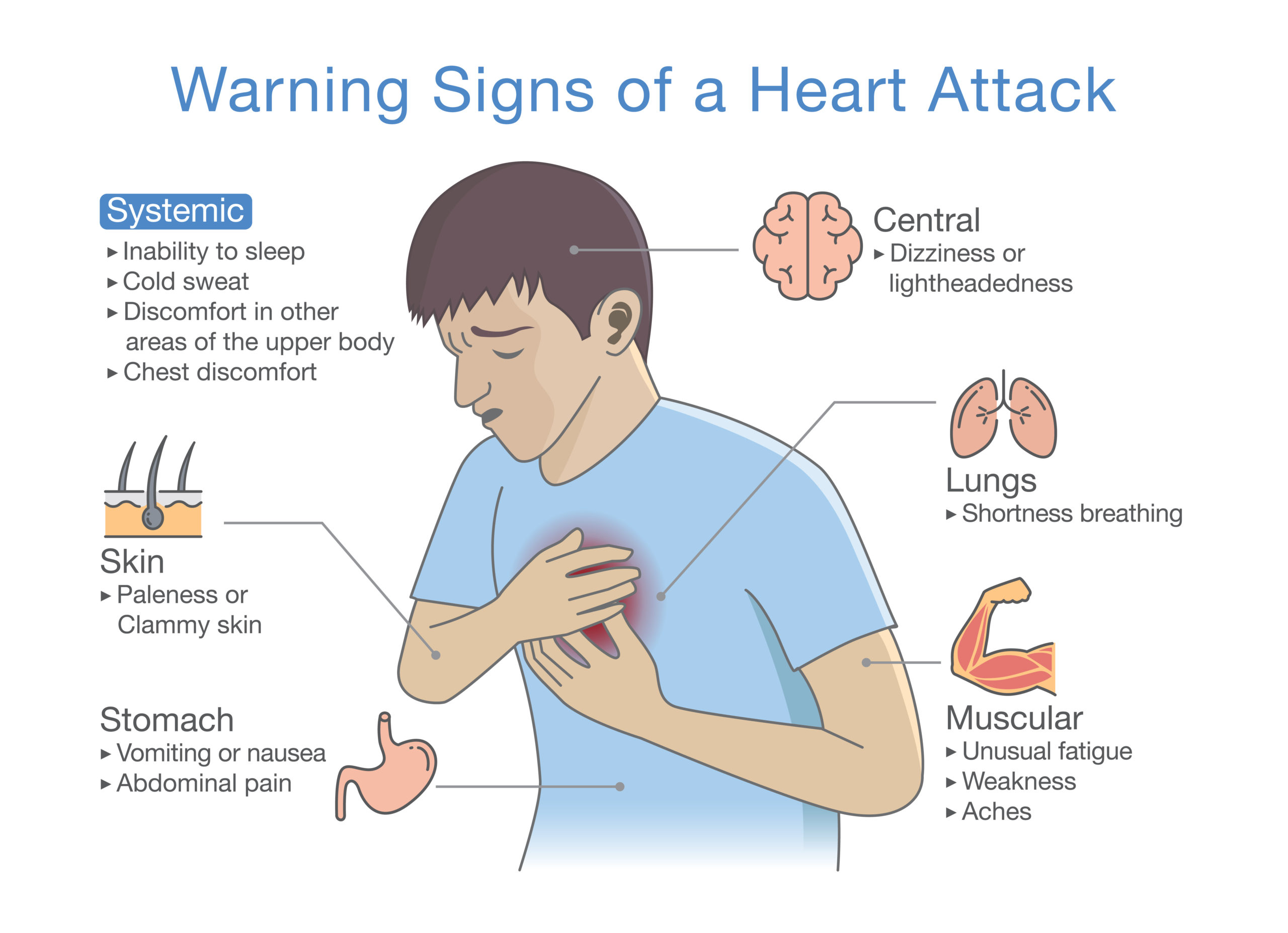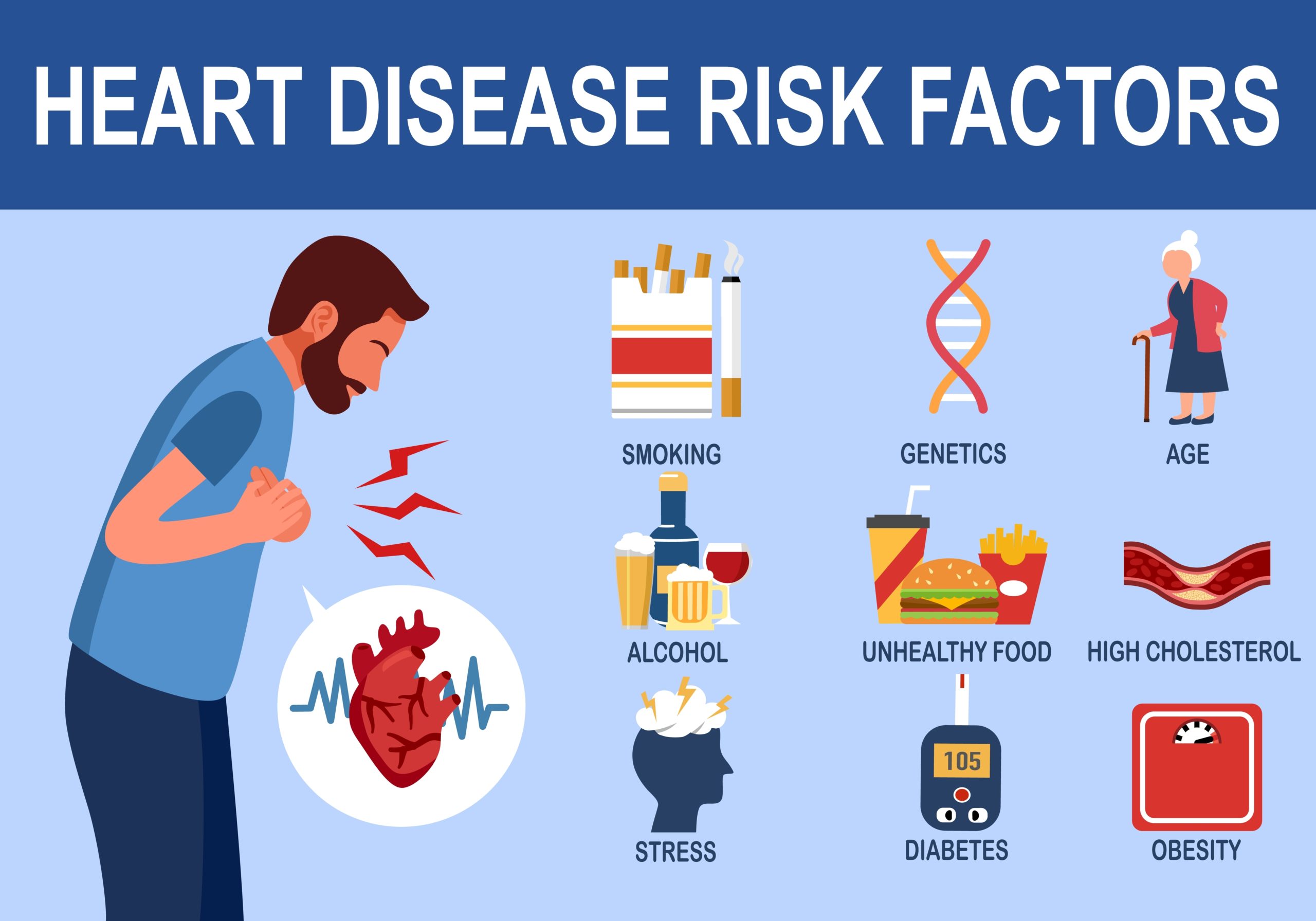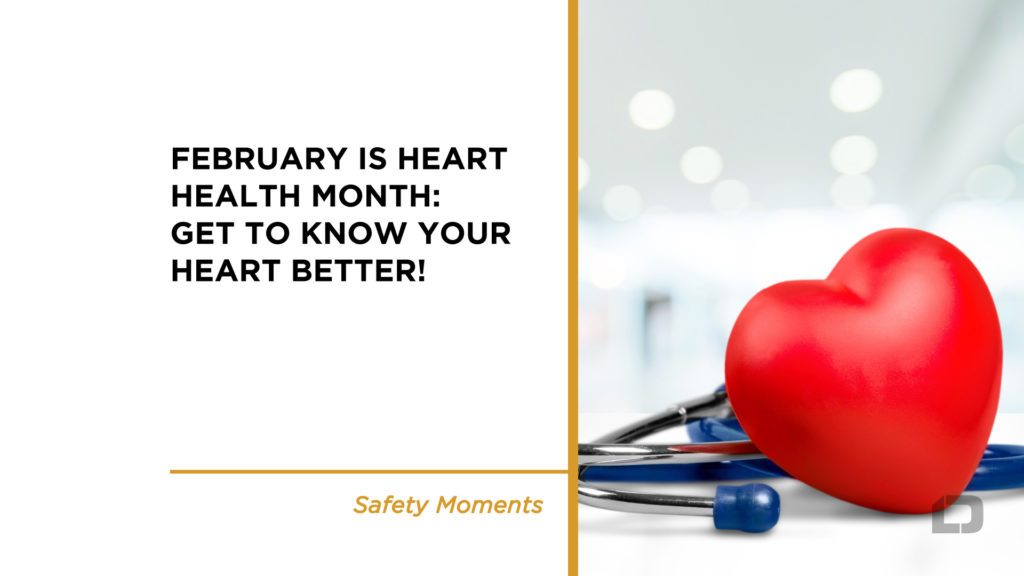Heart Disease: It Can Happen at Any Age
Heart disease doesn’t happen just to older adults. It is happening to younger adults more and more often. This is partly because the conditions that lead to heart disease are happening at younger ages.
February is National Heart Healthy Month, the perfect time to learn about your risk for heart disease and the steps you need to take to help your heart.
Heart disease—and the conditions that lead to it—can happen at any age.
High rates of obesity and high blood pressure among younger people (ages 35–64) are putting them at risk for heart disease earlier in life.
Nearly half of all Americans have at least one of the top three risk factors for heart disease: high blood pressure, high cholesterol, and smoking.
- High blood pressure. Millions of people of all ages have high blood pressure, including millions in their 40s and 50s. About half of the people with high blood pressure don’t have it under control. Uncontrolled high blood pressure is one of the biggest risks for heart disease and other harmful conditions, such as stroke.
- High cholesterol. High cholesterol can increase the risk of heart disease. Having diabetes and obesity, smoking, eating unhealthy foods, and not getting enough physical activity can all contribute to unhealthy cholesterol levels.
- Smoking. Over 35 million U.S. adults currently smoke, and thousands of young people start smoking daily. Smoking damages the blood vessels and can cause heart disease.
4 Ways to Take Control of Your Heart Health
- You’re in the driver’s seat when it comes to your heart. Learn how to be heart-healthy at any age.
- Don’t smoke. Smoking is the leading cause of preventable death in the entire globe. If you don’t smoke, don’t start. If you do smoke, learn how to quit.
- Manage conditions. Work with your healthcare team to manage high blood pressure and high cholesterol. This includes taking any medicines you have been prescribed. Learn more about preventing and managing high blood pressure and high cholesterol.
- Make heart-healthy eating changes. Eat food low in trans-fat, saturated fat, added sugar, and sodium. Try to fill at least half your plate with vegetables and fruits, and aim for low-sodium options. Learn more about how to reduce sodium.
- Stay active. Get moving for at least 150 minutes per week. You can even break up the exercise into 10-minute blocks for a total of 30 minutes a day. Learn more about how to get enough physical activity.

Heart Disease in the world
- Heart disease is the leading cause of death for men, women, and people of most racial and ethnic groups worldwide.
- Cardiovascular diseases (CVDs) are the leading cause of death globally, taking an estimated 17.9 million lives annually.
- CVD was the leading cause of death in Asia in 2019, causing 10.8 million deaths, which was approximately 35% of the total deaths in Asia.
- About 19.1 million people worldwide died from heart disease in 2020.
- Heart disease cost the United States about $229 billion annually from 2017 to 2018. This includes the cost of health care services, medicines, and lost productivity due to death.
Coronary Artery Disease (CAD)
- Coronary heart disease is the most common type of heart disease, killing 382,820 people in 2020.
- About 20.1 million adults aged 20 and older have CAD (about 7.2%).
- About 2 in 10 deaths from CAD happen in adults less than 65 years old.
Early Action Is Important for Heart Attack
Know the warning signs and symptoms of a heart attack.

Heart Attack
- On average, someone has a heart attack every 40 seconds.
- Every year, about 805,000 people in the United States have a heart attack. Of these,
- 605,000 are a first heart attack.
- 200,000 happen to people who have already had a heart attack.
- About 1 in 5 heart attacks are silent—the damage is done, but the person is unaware of it.
Facts About Hypertension
Blood pressure is the pressure of blood pushing against the walls of your arteries. Arteries carry blood from your heart to other parts of your body and typically rise and fall throughout the day, but it can damage your heart and cause health problems if it stays high for a long time. Hypertension, also called high blood pressure, is blood pressure that is higher than usual.
In 2017, the American College of Cardiology and the American Heart Association published new guidelines for hypertension management and defined high hypertension as blood pressure at or above 130/80 mmHg. Stage 2 hypertension is blood pressure at or above 140/90 mmHg.
- Having hypertension puts you at risk for heart disease and stroke, leading causes of death worldwide.
- Represents the largest portion of CVD deaths in many Asian countries, especially those with stroke as the dominant type of CVD.
- Nearly half of the adults in the United States (47%, or 116 million) have hypertension, defined as a systolic blood pressure greater than 130 mmHg or a diastolic blood pressure greater than 80 mmHg or are taking medication for hypertension.
- In China, about 270 million people have hypertension; only 13.8% of the patients have their condition under control, and not everyone with hypertension can access treatment.
- Only 1 in 4 adults (24%) with hypertension have their condition under control.
- About half of the adults (45%) with uncontrolled hypertension have a blood pressure of 140/90 mmHg or higher.
- About 34 million adults, who are recommended to take medication, may need it to be prescribed and to start taking it. Almost two out of three of this group (19 million) have a blood pressure of 140/90 mmHg or higher.
- High blood pressure costs the United States about $131 billion yearly, averaged over 12 years from 2003 to 2014.
For more information visit these links:
Center for Disease Control & Prevention (CDC): https://www.cdc.gov/heartdisease/index.htm
American Hearth Month 2023: https://www.cdc.gov/heartdisease/american_heart_month.htm
American Heart Association: https://www.heart.org/en/health-topics#.WkuaxFWnHIU
National Heart, Lung, And Blood Institute: https://www.nhlbi.nih.gov/health-topics/education-and-awareness/heart-truth
Live to the Beat Campaign: https://www.livetothebeat.org/
National Safety Council: https://www.nsc.org/safety-first/who-will-suffer-a-cardiac-emergency
World Health Organization: https://www.who.int/china/health-topics/hypertension







